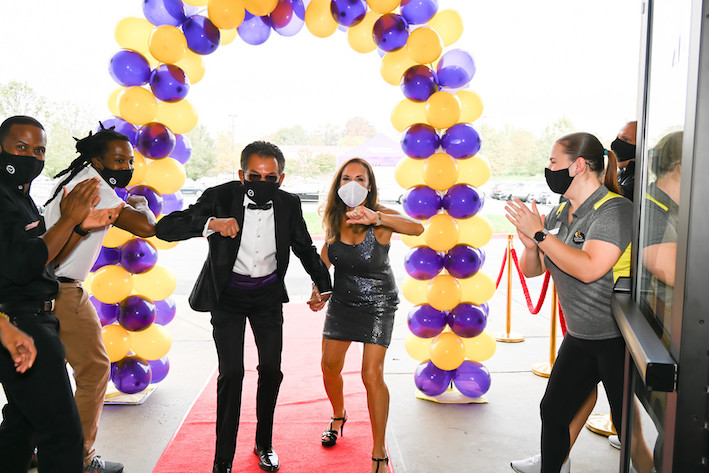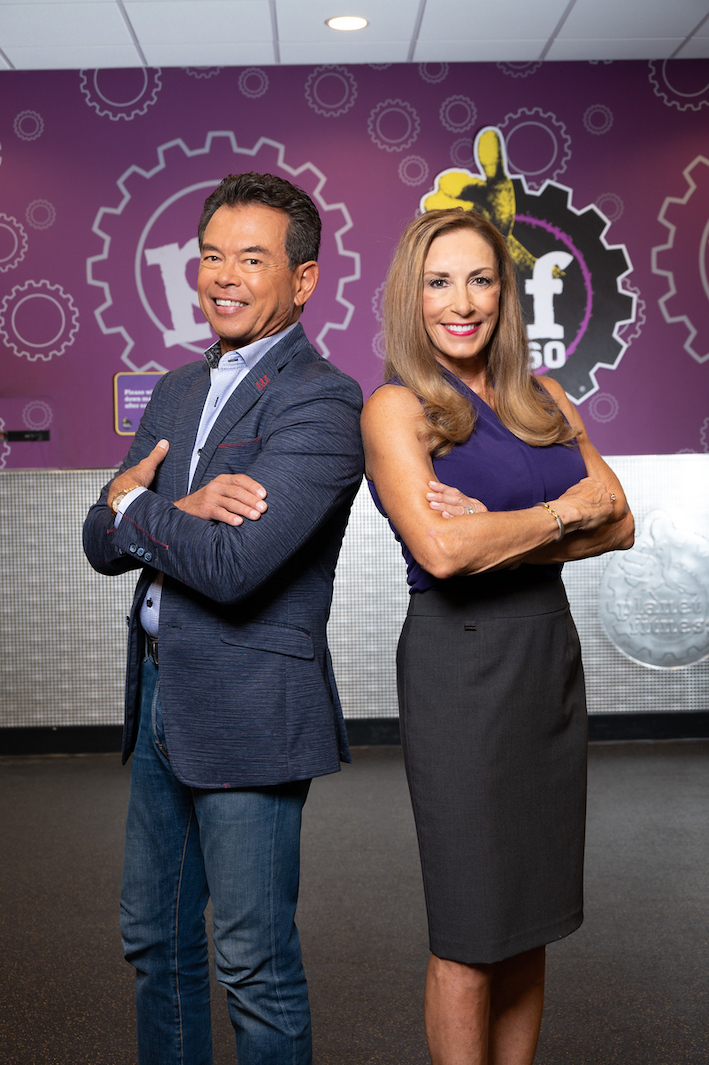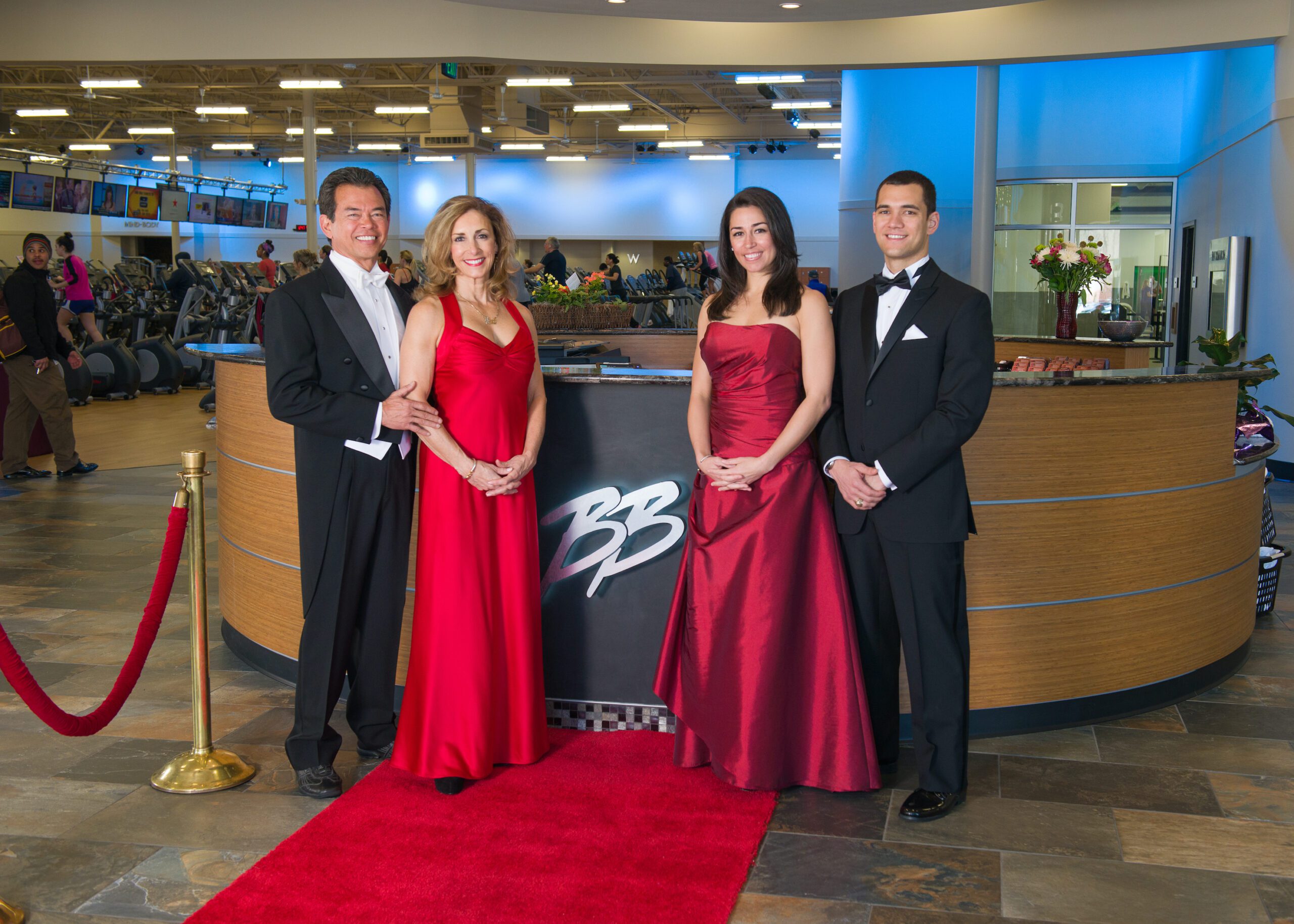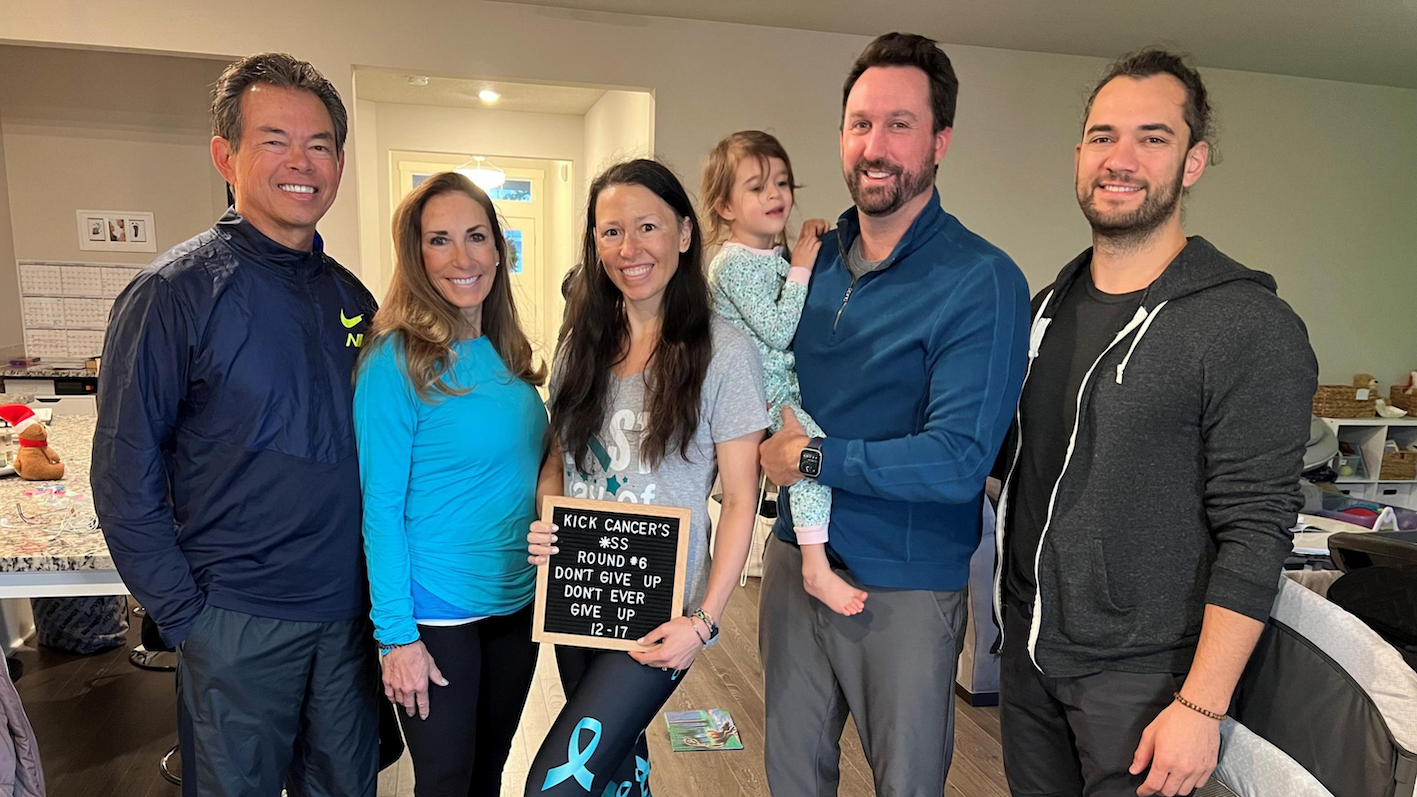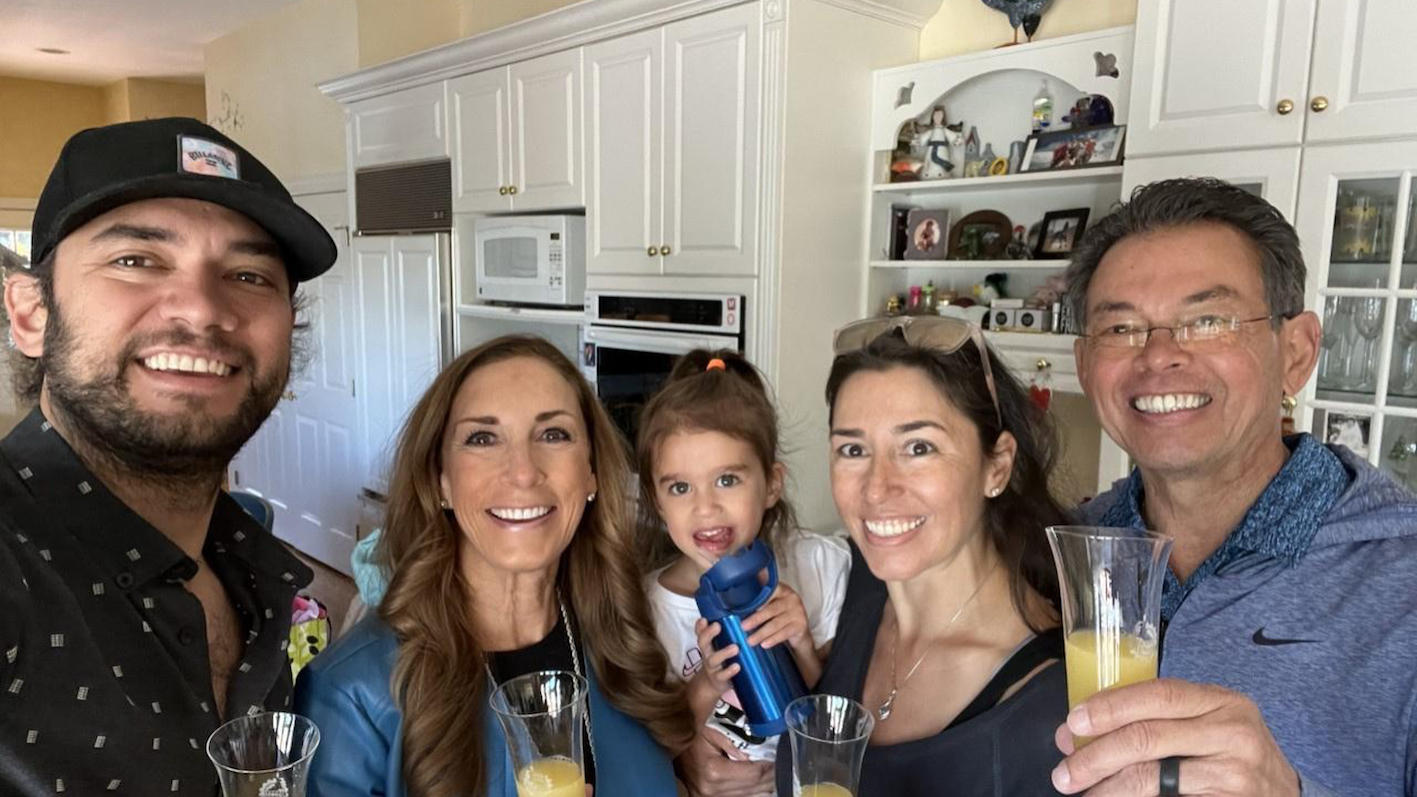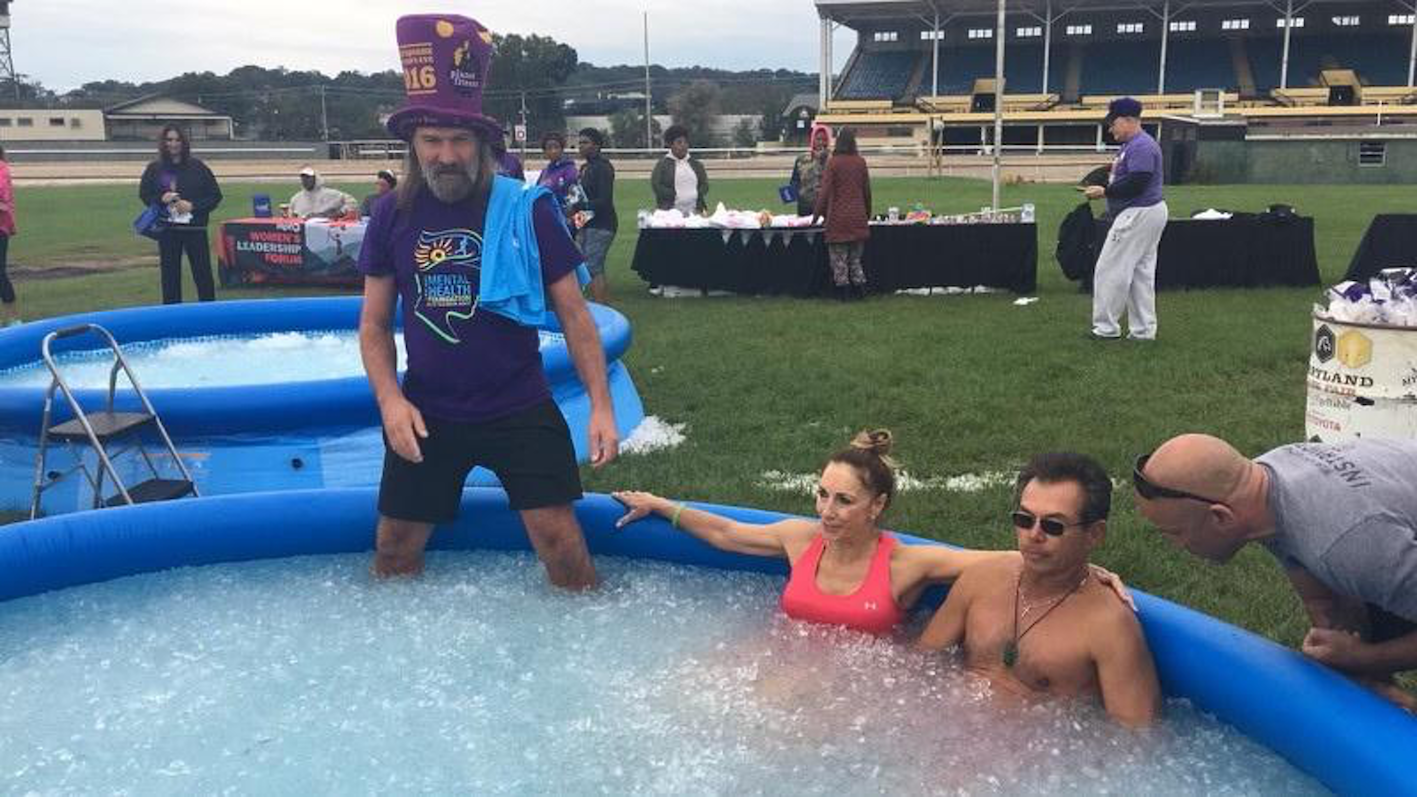Meet Lynne Brick, Co-Founder of The John W. Brick Mental Health Foundation and vice President of Fitness at Ohana Growth Partners, LLC, which owns and operates Planet Fitness health clubs throughout Maryland, Washington DC, Tennessee, Washington state, California, Florida, and Australia. She is an internationally acclaimed fitness expert, speaker, author, and business leader.
“You cannot achieve cooperation without proper communication”
Who is Lynne Brick?
Lynne Brick is a wife, mother, “Glammy,” business partner, inspirational leader, movement motivator, and caretaker who is addicted to family, love, and life.
How were you as a kid?
Firstborn, “type A” competitive in all I did. Loved PE classes. Raced the boys during every recess in elementary school. Took tap, jazz, and ballet classes and piano lessons. Performed in multiple theater and vocal arts productions. Choreographed musicals in high school and college. Graduated from HS with honors, received my BS in Nursing, graduating summa cum laude from Towson University. I also performed in TU’s Dance Company and minored in Dance.
You earned a Bachelor of Science in Nursing and a Master of Arts, why did you choose those courses of study?
I chose a nursing degree by accident. In high school, I dreamt of being either a Broadway dancer, one of Jackie Gleason’s “June Taylor Dancers,’ or in the performing arts. But my mother discouraged me. I met with my HS guidance counselor. He asked me why I liked science so much since I consistently received A grades. I explained I liked the labs. He encouraged me to major in medical technology in college, so I did. In the process of taking pre-requisite courses, I got a job at the local hospital to learn more about the field of medical technology. I worked as a nursing unit clerk. As such, I handled administrative duties for the nurses and transported specimens up to the lab. I soon realized that I did not want to work in a lab. I wanted to be where the action was; with patients, doctors, and nursing colleagues, to help make a difference in people’s lives. Upon graduation in 1978, I started my new job as a nurse at Shock Trauma, in Baltimore, MD.
Years later, three years after my brother-in-law John W Brick passed at 62 years of age, I decided to pursue a master’s degree in health and Wellness coaching. This degree complements my earlier nursing career and is based on positive psychology.
“Physical health and mental health/ well-being are interconnected. Mental well-being supports the body, and the body supports mental well-being. Healthcare costs can dramatically be reduced when there is government support for both”
You started your career by practicing nursing for seven years at the Maryland Shock Trauma Center, the first shock trauma unit in the world, how did you jump from that point to work in the fitness industry?
Through a window of opportunity! I blame it on my husband, Victor. While I was working half days as a nurse (11 pm to 11 am), he was working half days (four hours) as a recreation director and a coach. To make more money, he answered an ad in the paper to teach weight loss classes that included didactic as well as movement. Movement, according to Victor Brick, meant running, playing sports, or skipping rope. However, all the participants in the weight loss class were women! Things went sour when they started hitting themselves in the head with their jump ropes. They explained they wanted their movement to be aerobic dance. Victor immediately ran out to his car and retrieved his only cassette tape, Simon and Garfinkel’s Scarborough Fair. (Can you imagine?!) Then, he had his “light bulb moment.” “My wife’s a dancer, I will get her to do this stuff!” He was so excited to tell me his plan. That’s when I replied, I’ve never taken an aerobic dance class, but I can learn. So, I got up early to watch “Morning Stretch” and “The 20-minute Workout.” After two days I told Victor, “If they can do it, I can do it.” A few days later I did. The very first fitness class I ever took was the one I taught!
Meanwhile, the owner of the club, Roger Ralph, watched me teach the class in a racquetball court. Afterward, he pulled me into his office stating, “You have potential.” 100 health clubs plus thousands of classes and presentations later, I have not looked back.
You are co-founder with your husband, Victor, and president of Ohana Growth Partners, LLC (OGP), which owns and operates Planet Fitness health clubs throughout Maryland, Washington DC, Tennessee, Washington State, California, Florida, and Australia. You served on the Member Engagement and Fitness Delivery Committees and currently serve on the Government Relations Committee, for the Planet Fitness Independent Franchisee Council. What lessons have you learned in the fitness industry over the years?
I have learned many lessons while serving on these and many other industry committees. Here are a few: 1. If you are the smartest person in the room, you are in the wrong room. 2. More brains are smarter than one. Collaborating with your team and industry peers is invaluable. 3. You cannot achieve cooperation without proper communication. 4. There is no such thing as over-communication. 5. Two critical components for business success: focus and communication. 6. Being part of a REX roundtable to learn from industry leaders from around the globe was invaluable for personal and professional growth. 7. The industry must unite together to create an impact and to help educate local, state, and federal legislators who may try to pass bills that could harm our businesses. (Passing positive legislation could help our businesses and also help improve the health and well-being of the communities we serve.) 8. Legislative action is a practice that takes patience. 9. Stay close to your friends and closer to your competitors. 10. It takes a team to launch and grow a dream.
“Surround yourself with A team players who do not always think like you. It takes a team to launch and grow a dream”
In 2015, you and your husband Victor founded the John W Brick Mental Health Foundation, in honor of Victor’s oldest brother, John, who died of complications of schizophrenia. Throughout his illness, he was never offered a well-rounded, fully integrated program. Tell us more about how the association works, what services you provide, and other information you want to share.
The John W Brick Mental Health Foundation is a 501c3 foundation whose mission is the change the way the world treats mental health. We do this by educating and integrating self-care approaches such as exercise, nutrition, and mindfulness practices into the treatment of mental health and the promotion of mental well-being.
JWB accomplishes this in three ways: we fund and promote evidence-based research (i.e. funded a gold standard study at UCSF, created the Move Your Mental Health Report tm: a meta-analysis of 30 years’ worth of research on how exercise impacts depression and anxiety), we create programs and services, and we function as a collaborative hub working with like-minded organizations and foundations.
JWB’s recent initiative, The Mental Wellbeing Association, hosts educational programs and certifications, the first of which is the inaugural Mental Wellbeing Certification for Fitness Professionals. Additionally, each certification promotes educational content for CECs. The next certification we will offer is the Mental Wellbeing Certification for Educators.
Until we lived through the Covid 19 pandemic, it was recognized the importance of mental health, in the world, what are the challenges that mental health still faces and what should the government, universities, and society in general do to have a life with greater well-being?
While we know there has been a global post-pandemic mental health crisis, what many may not realize is that we are at the beginning of a mental health renaissance! Every person can learn to help those whom they serve, help their family, and even help themselves. Here is what JWB recommends:
- Educate yourself and those you serve on self-care healthy habits that work best for each individual. For example, forest bathing may work best for some, and engaging in HIIT activities may work best for others to reduce depressive symptoms.
- Understand the Yerkes-Dodson Law of Positive Stress. Stress is good to a point. Too much stress can cause distress. Too little stress does not influence change.
- Make mental well-being self-care practices a priority. Schedule in your calendar similar to an important work meeting.
- Government officials must learn about loneliness and isolation: two key components that lead to mental health issues. The best ways to combat these are through connectivity (ideally live, not virtual) and developing coping skills. Physical health and mental health/ well-being are interconnected. Mental well-being supports the body, and the body supports mental well-being. Healthcare costs can dramatically be reduced when there is government support for both.
- All educational institutions, K through university level, should made aware of self-care methods that can help their students and their faculty.
- Collaborate and integrate with the mental health medical community. Similar to the yin/ yang model, health care and self-care should be integrated synergistically together.
- In essence, society needs to focus on a cultural shift toward proactive prevention techniques that are based on research and can help people move from languishing toward flourishing, with or without a diagnosable mental illness.
“Be a life-long learner, like a sponge: Read, listen, observe, absorb, participate, attend, and be present”
What routines, exercises, etc. do you recommend for a healthy life and good mental health?
Whatever someone LIKES to do. Movement and healthy lifestyle self-care practices must resonate with each person so they will be consistent. And it does not take that much time. Start with only 5-10 minutes of movement or meditation or being in nature, etc. a day. Gradually increase duration over some time. Before you know it, your healthy lifestyle choice will become a healthy habit, just like brushing your teeth twice daily. Remember, it only takes 60 days for positive change to become a habit, which can lead to a lifelong shift toward physical and mental well-being.
Lynne, you are the co-founder of the John W. Brick Mental Health Foundation and also the owner of Brick Bodies Fitness Services, Inc., an internationally acclaimed fitness expert, and you are considered one of the leading group exercise instructors in the world, you are the 2004 Ernst and Young Maryland Entrepreneur of the Year and 1990 IDEA (The Association for Fitness Professionals) Instructor of the Year. In 2008 you were the first woman inducted into the Baltimore County Chamber of Commerce Business Hall of Fame. What's the recipe for your success?
First, thank you. I greatly appreciate your recognition of my recognition. There are several ingredients to this recipe which many people use:
- Surround yourself with “A” team players who do not always think like you. It takes a team to launch and grow a dream.
- Hire people who believe what you believe and have aligned core values.
- Especially for women, learn to say “no”. I had suffered from “I can do it all” syndrome and experienced two life-threatening tumors, within five years, which knocked me off my feet.
- Be like water and go with the flow. Nothing is life and death except life and death.
- Lean into your strengths. Strengthen your weaknesses.
- Lean into your anchors. My anchors are Faith, Family, Friends, fellow associates, and Fitness.
- Learn to let go of the things you cannot control and focus on the things you can control.
- Kai Zen. Be in a state of constant never-ending improvement.
- Be a life-long learner, like a sponge: Read, listen, observe, absorb, participate, attend, and be present.
- Be curious like a child. Curiosity can help you discover more about yourself, about others, and about your surrounding vibrant beautiful world.
- Have an attitude of gratitude or a grateful heart.
- 1% more. That 1 % of energy, focus, improvement, EBITDA, ROI, etc. can help transition from good to great.
- Carpe Diem. Life is short. Live with no regrets.
“ There is no such thing as balancing professional and personal life. Make wise choices for yourself and your family based on your core values
Perfection can be toxic. Strive to always do and be your best at the moment”
Can you elaborate on the world's first mental well-being certification that the mental wellbeing association is offering?
Yes! The Mental Well-being Certification for Fitness Professionals launched in May 2024. The purpose of the certification is to provide self-care tools professionals can use to help the people they serve, to help their loved ones, and even to help themselves. It is 100% an online course that consists of 10 modules discussing evidence-based research supporting each topic. Eight of the ten modules also include practical applications to implement the information, including one-on-one as well as group settings. The ten modules are Intro, Redefining Mental Health, Movement and Exercise, Eating Well and Nutrition, Mindfulness and Meditation, Social Connection, Creating Safe Space, Basic Health and Wellness Coaching Skills, Ethics and Collaboration, and Putting It All Together. There is a quiz at the end of each module and a final test. Additionally, MWA is providing continuing education credit courses and webinars to keep certified participants up to date with the latest research on mental health and mental well-being.
The next certification that MWA is launching is the Mental Well-being Certification for Educators. MWA plans to also launch certifications for first responders, corporate wellness professionals, counselors, and many more industries.
You have also served on numerous other boards such as the American Heart Association, Cystic Fibrosis Foundation, the Board of Visitors for the University of Maryland School of Nursing as well as the Baltimore County Chamber of Commerce. On the First 1000 Days Global Wellness Institute’s Key Initiative Committee. A member of the Board of Advisors for the Johns Hopkins Department of Psychiatry and Behavioral Science. What drives you?
What drives me is my compelling commitment to give back to those who have helped me, those who have influenced me, and those whose mission aligns with mine to do better in the world.
What does a normal workday look like for you?
A normal workday for me starts with self-care. Deep breathing, mindful meditation walks, silence for deep thought and reflection, then planning and preparation for the day. I either workout or play tennis in the morning or later in the day.
Work involves either club visits, virtual or live meetings with our Ohana team, our JWB team, our MWA team, and/ or connecting to our collaborating organizations. However, since I have been a primary caretaker for our daughter battling cancer, I am blessed that our teams have given me the grace to miss meetings so I can focus on her and her five-year-old daughter during her treatments.
Also, there is no such thing as “9-5” when you own a business. With that in mind, I take regular breaks from the computer and focus on self-care activities to refresh and rejuvenate. Plus, I am mindful about technology detox every day. There is no media or technology exposure during meals and tech is put to sleep by nine pm each night.
What do you love most about your job? & what is the most difficult part?
Our Ohana culture is what I love. My husband, Victor grew up in Hawaii and has always been drawn to the people, the islands, and the culture. Ohana is a Hawaiian term that means family. When you are not with your ohana, we are your ohana and when we are not with our ohana, you are our ohana. The “aloha” spirit resonates with each of our ohana team members, and they love it too. As they say, “culture eats strategy for breakfast.”
I love working with our teams, creating new opportunities, focusing on new challenges, and working with family members.
However, the most challenging part is working with family members. Victor and I have been life partners for 46 years and business partners for 42 years. Our children grew up in a house that constantly focused on the business because we were young and inexperienced. To give perspective, our daughter Vicki was 4 years old, and our son Jon was born two months after we bought our first club. We had fun, but dinner conversations revolved around work until our kids discovered their own sports and fitness journeys. For those of you who work and live with your spouse, no doubt there are challenges. However, the blessings outweigh the “curses”.
What is one strategy that has helped you grow your business?
Partners. When we only had Brick Bodies, growth was challenging physically and financially. However, when we became Planet Fitness franchisees, we brought on partners whom we trusted, who challenged us all to make the best decisions to grow the business, and who believed what we believed.
Do you have a book, podcast, or talk that’s had a deep impact on your thinking?
They are TNTC (Too Numerous to Count), however my primary “go-to” is the Bible.
Do you have any particular philosophy that guides your career decisions?
Discover where there is a need, then find a way to service that need.
What do you like to do in your spare time?
What I love to do in my spare time, is “Lyme”. Or as our great Australian friend, Jamie Hayes says, “Sometimes I just sit and think and sometimes I just sit.”
When I am not engaged in an active activity such as hiking, tennis, or fitness, I love to watch live sporting events, such as professional tennis tournaments, football games, and basketball games.
I also love to travel and experience the sites and wonders of our beautiful world and immerse myself in a vast variety of cultural experiences.
Many authors say women can and must strive to have everything – a shining career, a blossoming family life, and a perfectly balanced lifestyle all at once, others point out that– then women are placing unrealistic expectations on themselves if they believe they can have it all, You have been married for 46 years and have two adult children, so according to your experience, what do you think about these statements?
As I have previously mentioned, learning to say NO and being like water to move through the flow of life is important. Our daughter Vicki has been battling ovarian cancer for three years. Her battle has also become our battle, as we have been with her every step of the way. Nothing and I mean nothing is as important as precious time with loved ones who are experiencing a health challenge. Vicki had a recurrence this summer which required her to go back to intense chemotherapy treatments every three weeks with an additional booster one week later. Needless to say, this past summer has been focused on helping her and her family through each treatment. Here is the bottom line: There is no such thing as “balancing” professional and personal life. Make wise choices for yourself and your family based on your core values.
What are your plans for the future?
My plans for the future include engaging in more family time, selling the majority of Ohana Growth Partners to free up more time, growing the Mental Wellbeing Association’s future certifications, generating revenue for JWB’s 501c3 foundation to give to other like-minded organizations, plus traveling to explore more of our beautiful planet and her people and cultures.
There is still a glass ceiling for women in the world: Fewer opportunities, jobs underpaid just for the fact of being a woman, etc. Have you experimented with the glass ceiling? If yes, what are the biggest challenges you have faced and how have you overcome them?
I am blessed to say that I have not personally experienced the “glass ceiling”. As a nurse at the first Trauma unit in the world, nurses had much adoration and respect from the docs who visited from around the world. I then fell into the fitness industry as a business owner. Often, I would be the only female on boards, and I was the only female on our REX round table. I never felt I had to prove myself. I have always simply been “myself” and have been able to be fairly and financially rewarded for my expertise and professional contributions.
What tips can you give to young girls who want to be like you?
Tips I learned from my peers, my friends, my family, and the elders in my life:
- My daughter Vicki, (who was an academic all-American Division I basketball player and played professionally abroad) always said, “Doubt is the killer of dreams.”
- As UCLA’s legendary coach John Wooden said, “Don’t let what you can’t do stop you from doing what you can.”
- As my grandmother said, “Make each decade better than the last.”
- It is OK to fail. When you fail, fail fast, then fix fast.
- Perfection can be toxic. Strive to always do and be your best in the moment.
- Life is a journey full of ups and downs. Celebrate the victories learn from challenges and give yourself grace to do so.
- Love yourself, then you will learn how to love others.
- Discover and connect to a higher being. (Mine is Christian faith-based. I believe in the Holy Trinity.)
- Always be true to yourself and others. Integrity is a sacred virtue.
- Be present for others. It is the greatest gift you can someone.
I think in your position, many people may have the wrong idea of who you are, and what you do (professionally), with this idea in mind, what is being Lynne and what's not?
Lynne is Kind yet tough. Honest. Empathetic. A connector/ manifester. Hard worker. Family-focused. Faith-based. Emotional. Energizer. Motivator. Lynne is not a person who is: deceptive, poker-faced, full of hate, or has a negative attitude.
Who is the woman you admire the most and why?
I have many just to name a few: Mother Teresa for her selflessness and commitment to help others. My grandmother because of her ability to face adverse challenges with a smile, grace, and ease. My mother because of her ability to shift from being an impossibility thinker to a positive possibility thinker.
Name: Lynne Brick
Sector: Health
Company: The John W. Brick Mental Health Foundation
Designation: Co-Founder
Country: USA
Social media:
https://www.johnwbrickfoundation.org/
https://www.instagram.com/johnwbrickfoundation/
https://www.facebook.com/johnwbrickfoundation/

